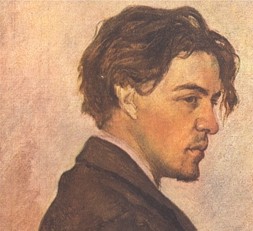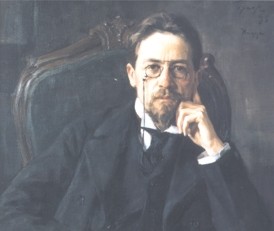
"On reading Chekhov, we first grow ecstatic, and then we grieve. For he is one of those writers whose spiritual and literary intelligence (they are one thing with him) is so powerful that for a moment we are seduced by our pleasure into believing in human progress, in the moral evolution of the species; then, a moment later, we see that he is in fact only a giant, an anomaly, possibly an angel, and that we may not have another like him for a thousand years."
- Russel Banks
"What really attracted the Russian reader was that in Chekhov's heroes he recognized the Russian Idealist ... a man who combined the deepest human decency of which man is capable with an almost ridiculous inability to put his ideals and principles into action; a man devoted to moral beauty, the welfare of his people, the welfare of the universe, but unable in his private life to do anything useful; frittering away his provincial existence in a haze of utopian dreams; knowing exactly what is good, what is worth while living for, but at the same time sinking lower and lower in the mud of a humdrum existence, unhappy in love, hopelessly inefficient in everything - a good man who cannot make good. This is the character that passes - in the guise of a doctor, a student, a village teacher, amyn other professional people - all through Chekhov's stories."
- Vladimir Nabokov
